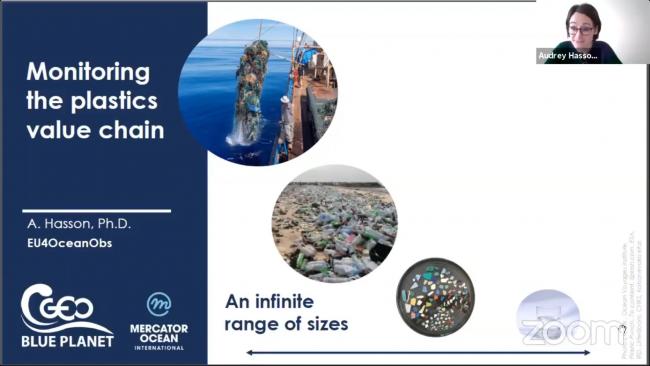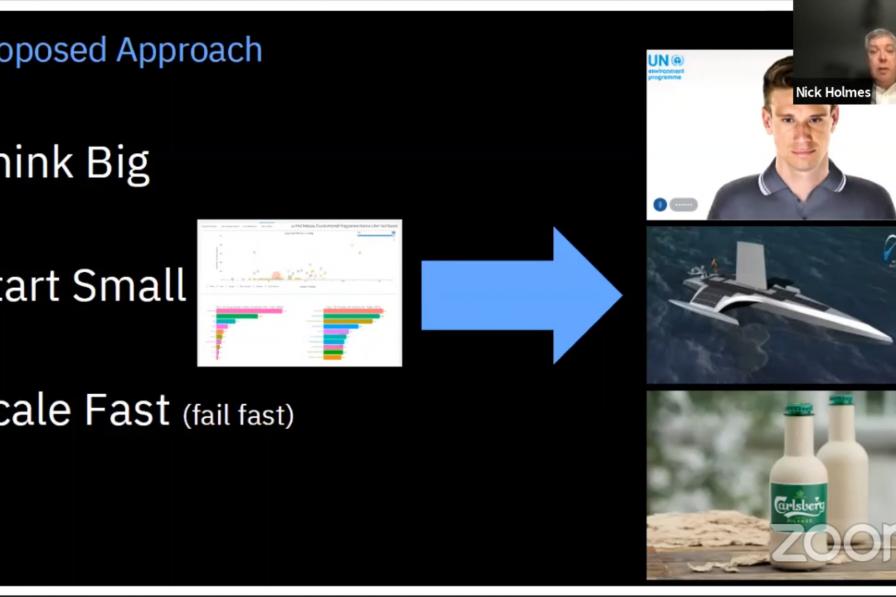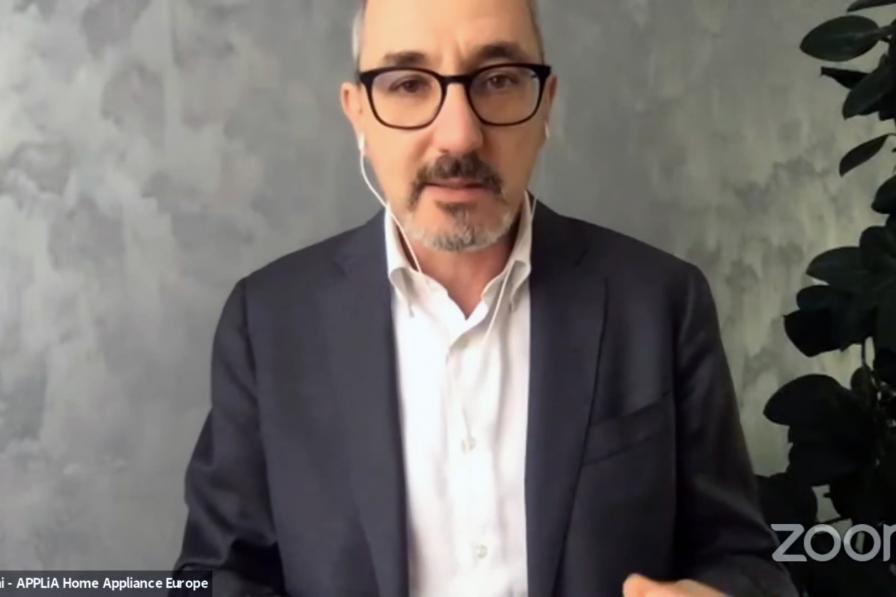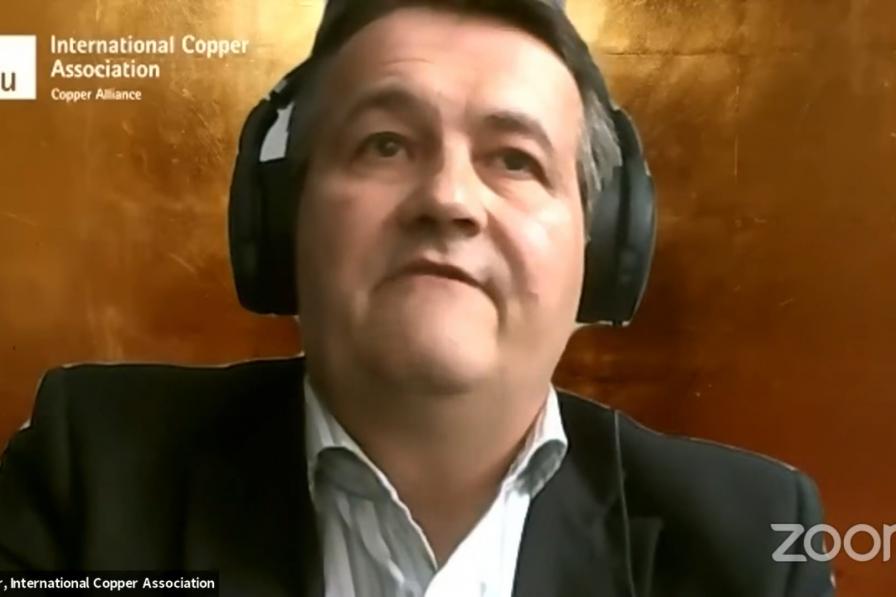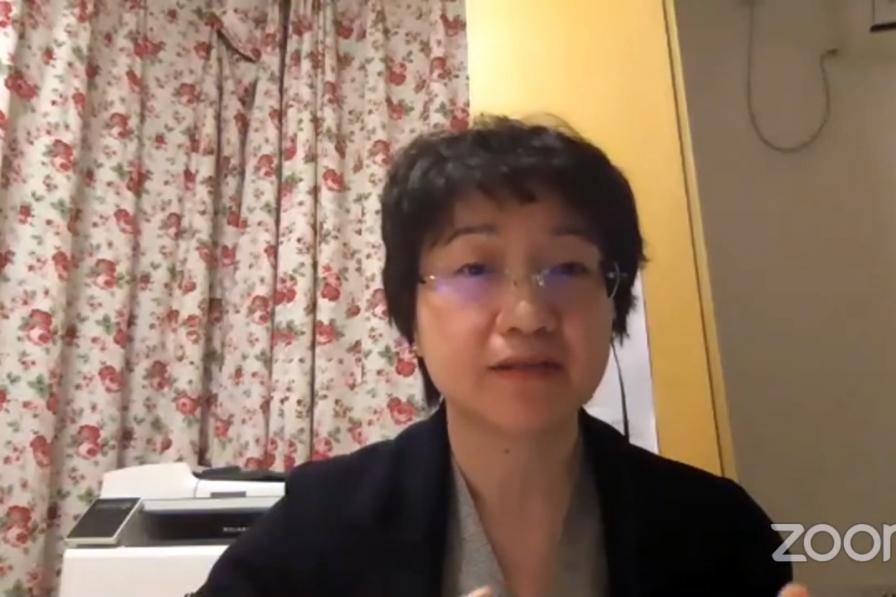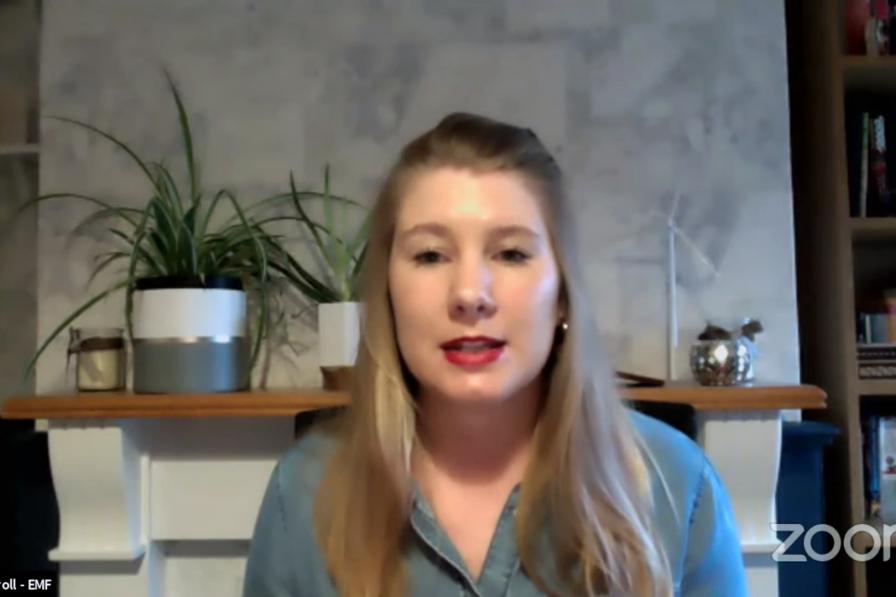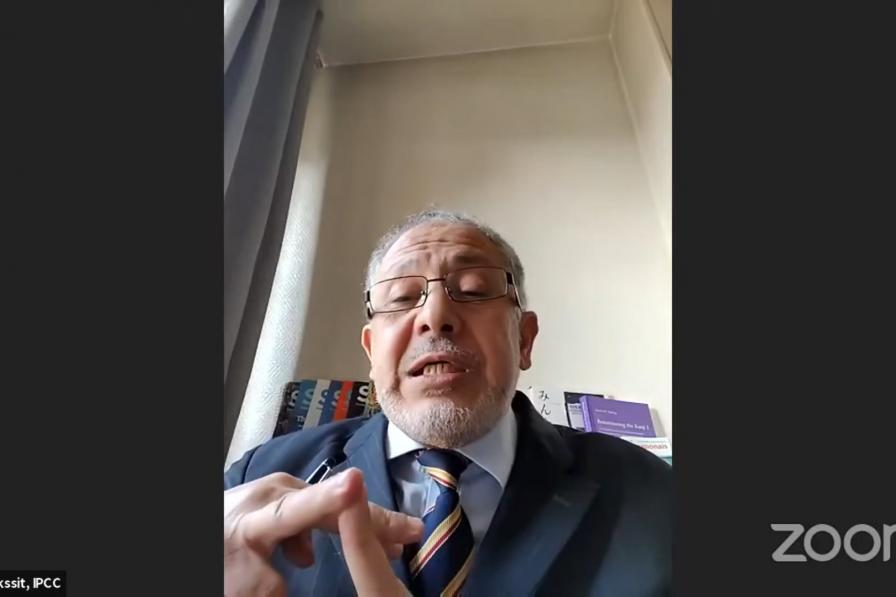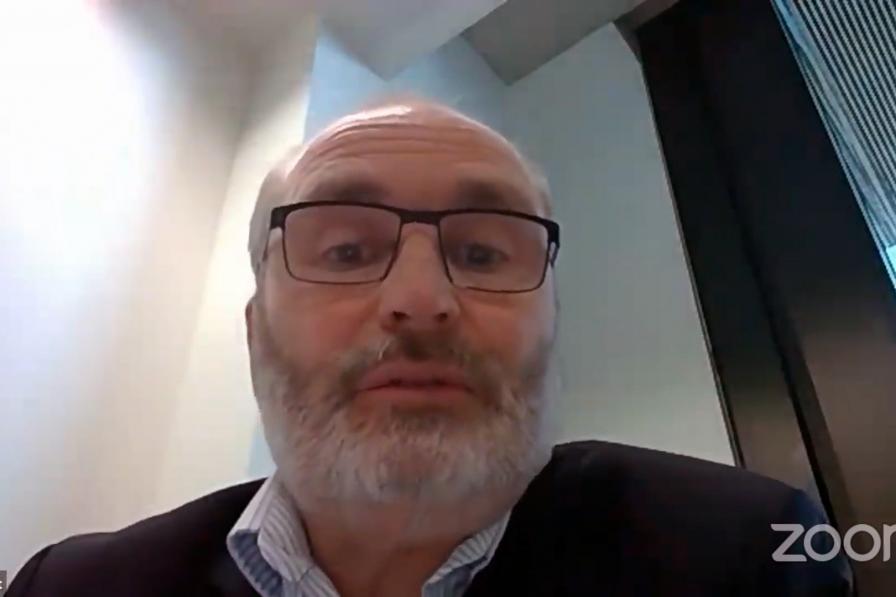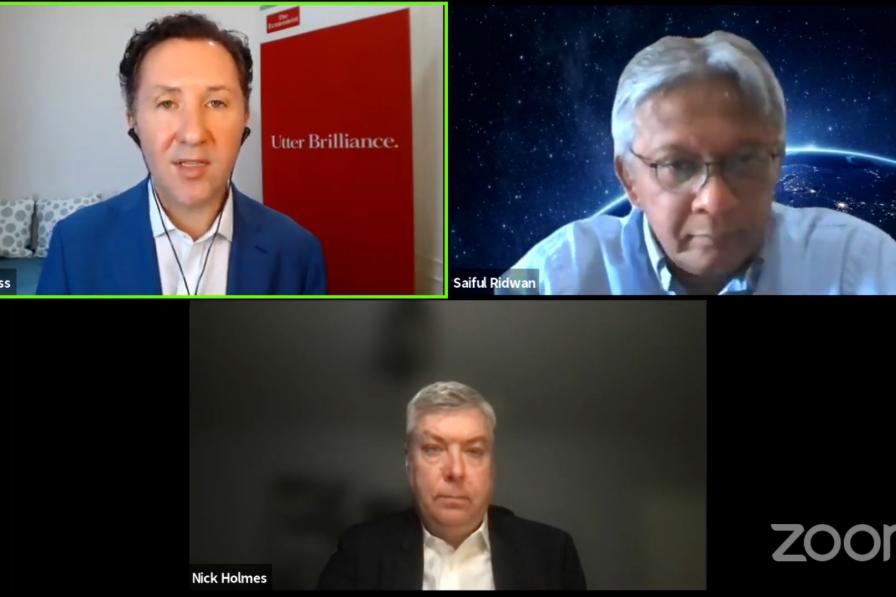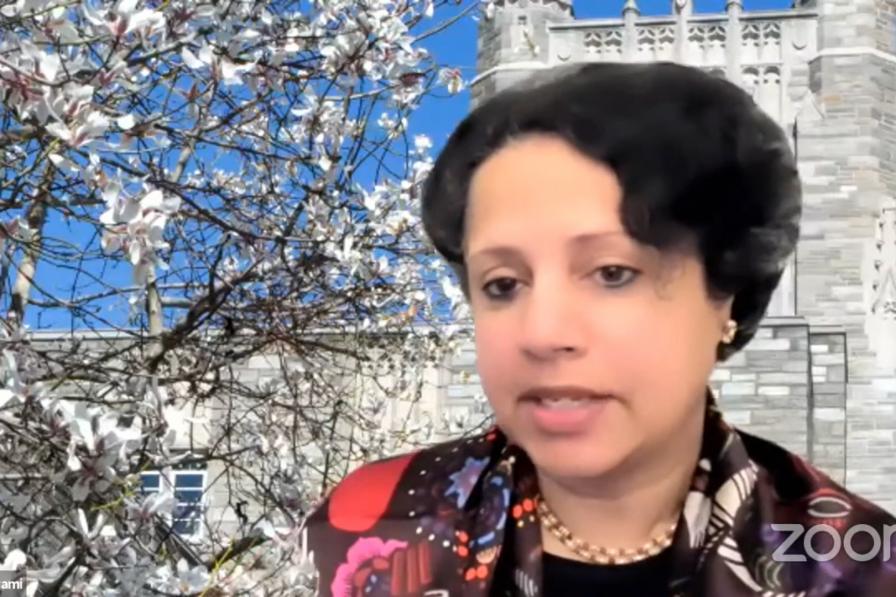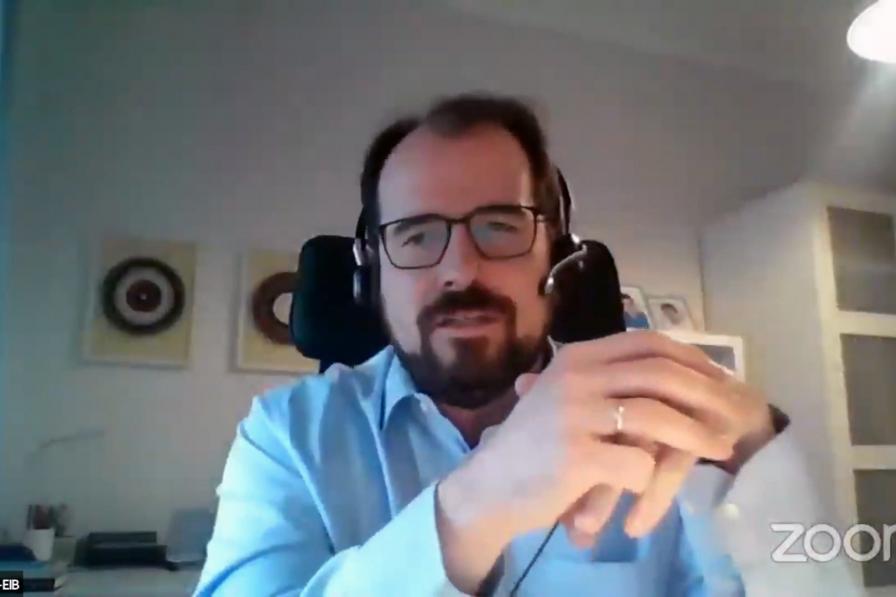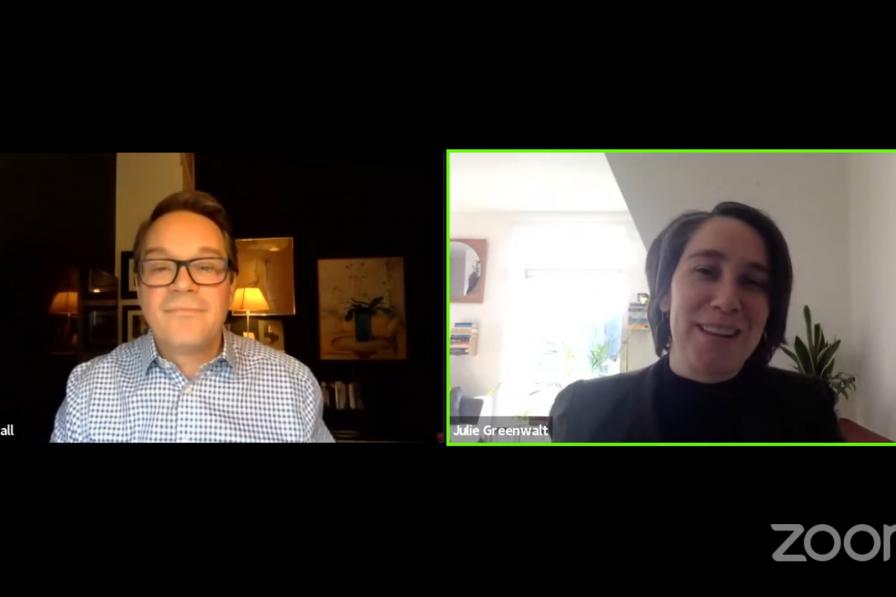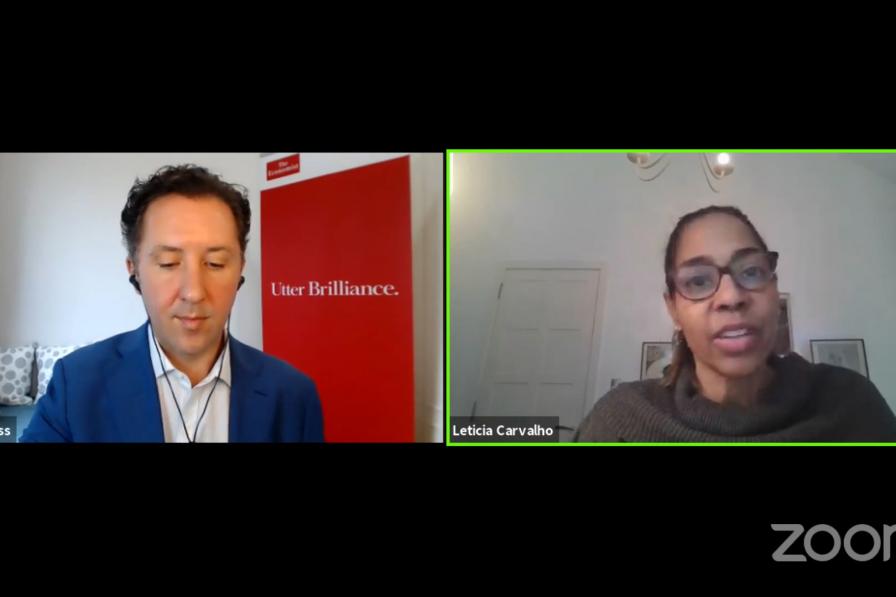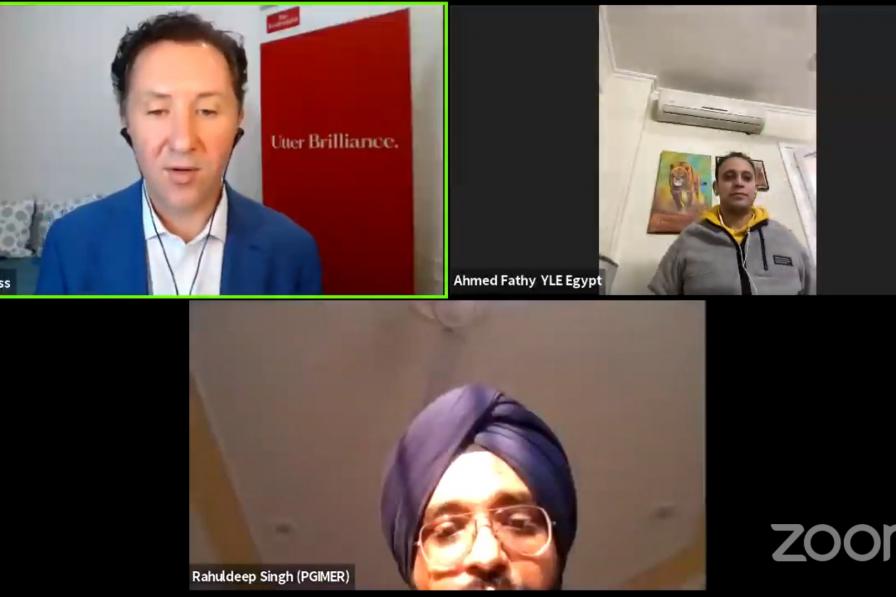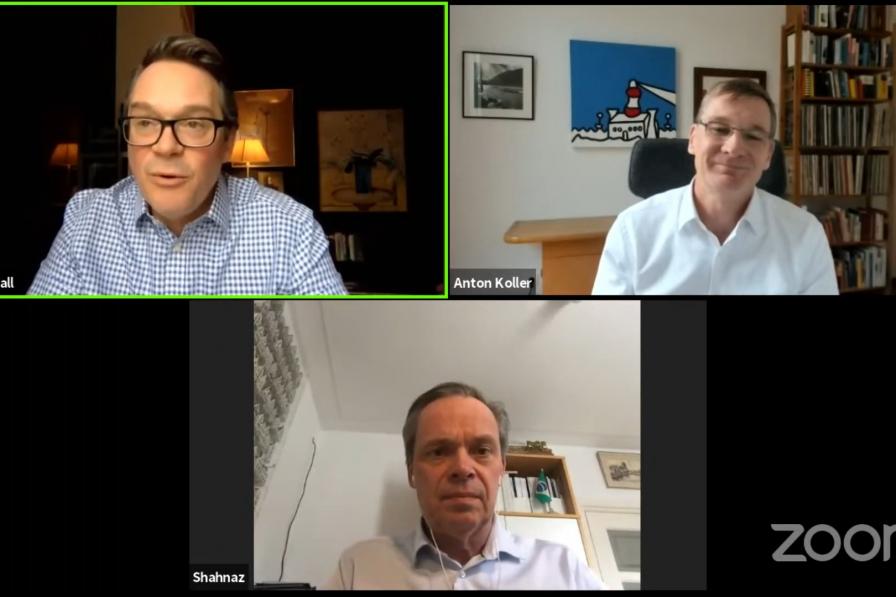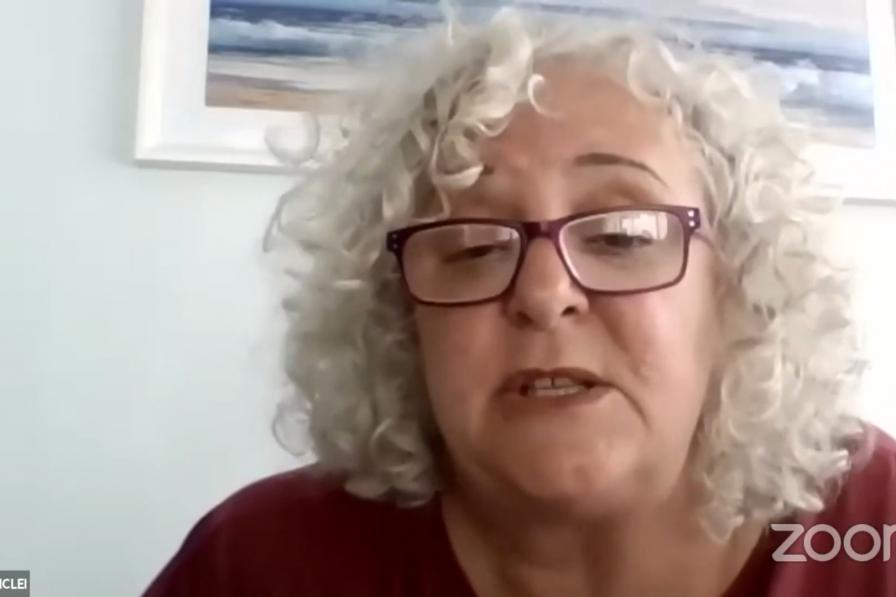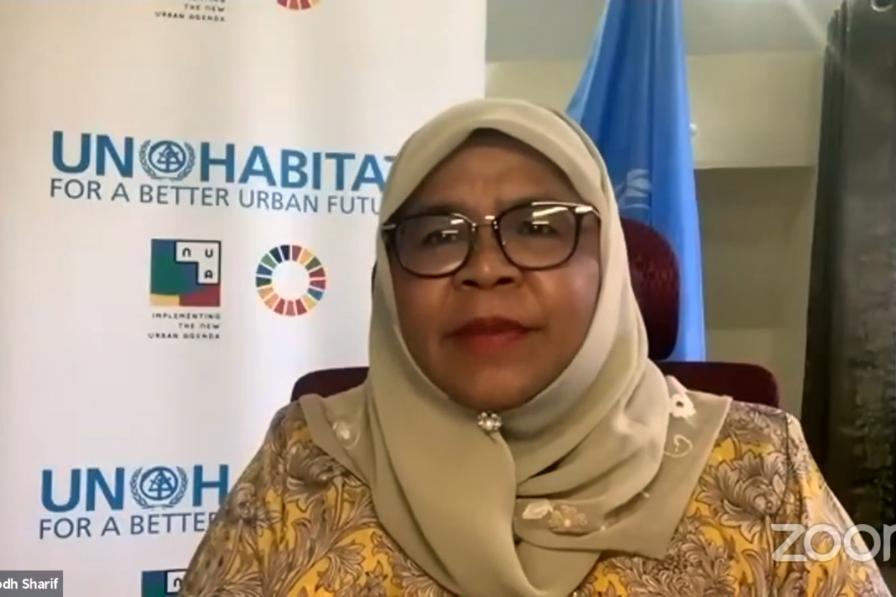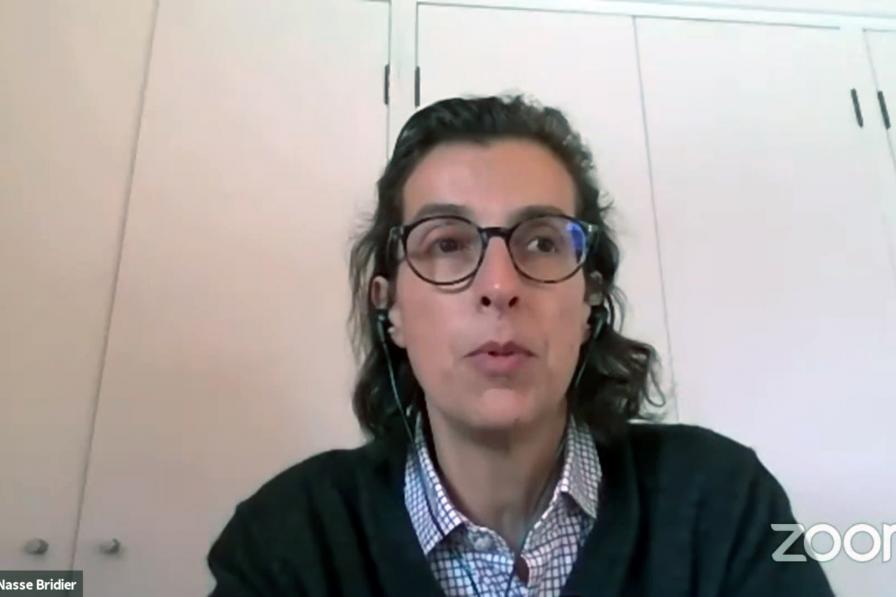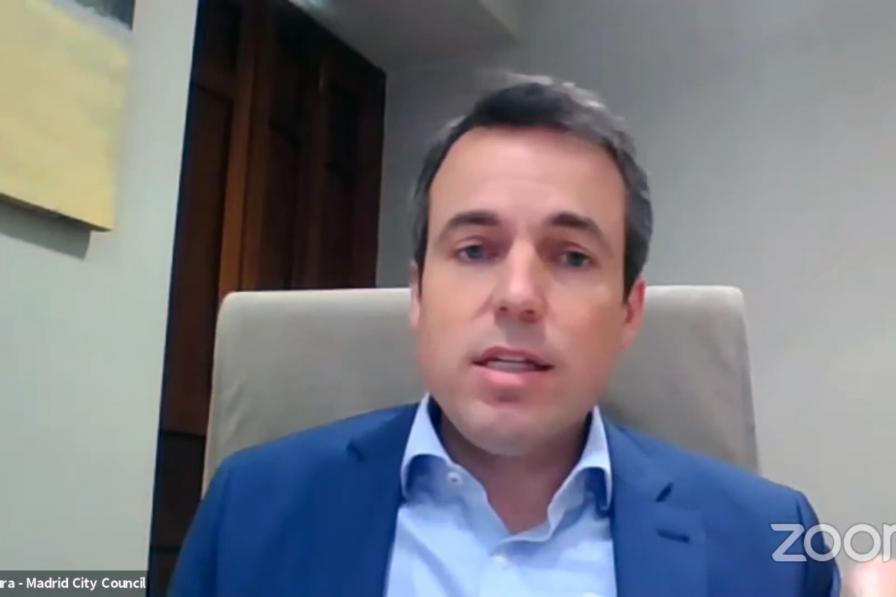The second day of the UN Science-Policy-Business Forum on the Environment (UN-SPBF) 2021 featured two sessions on:
- Rethinking Cities: Bringing Nature to the Urban Environment; and
- Marine Litter and Microplastics Mitigation and Prevention.
![]()
Marine Litter and Microplastics Mitigation and Prevention

Co-convened with the Global Partnership on Marine Litter.
The session on “Marine Litter and Microplastics Mitigation and Prevention” discussed:
- The latest science on the risks posed by marine litter and microplastics for ecosystems, human health, and society;
- Urgent policy actions required at the multilateral and national levels to manage and mitigate the risk of marine litter;
- The roles innovation, technology, and finance must play; and
- The role of multi-stakeholder cooperation in the management and mitigation of marine litter and microplastics-related risk.
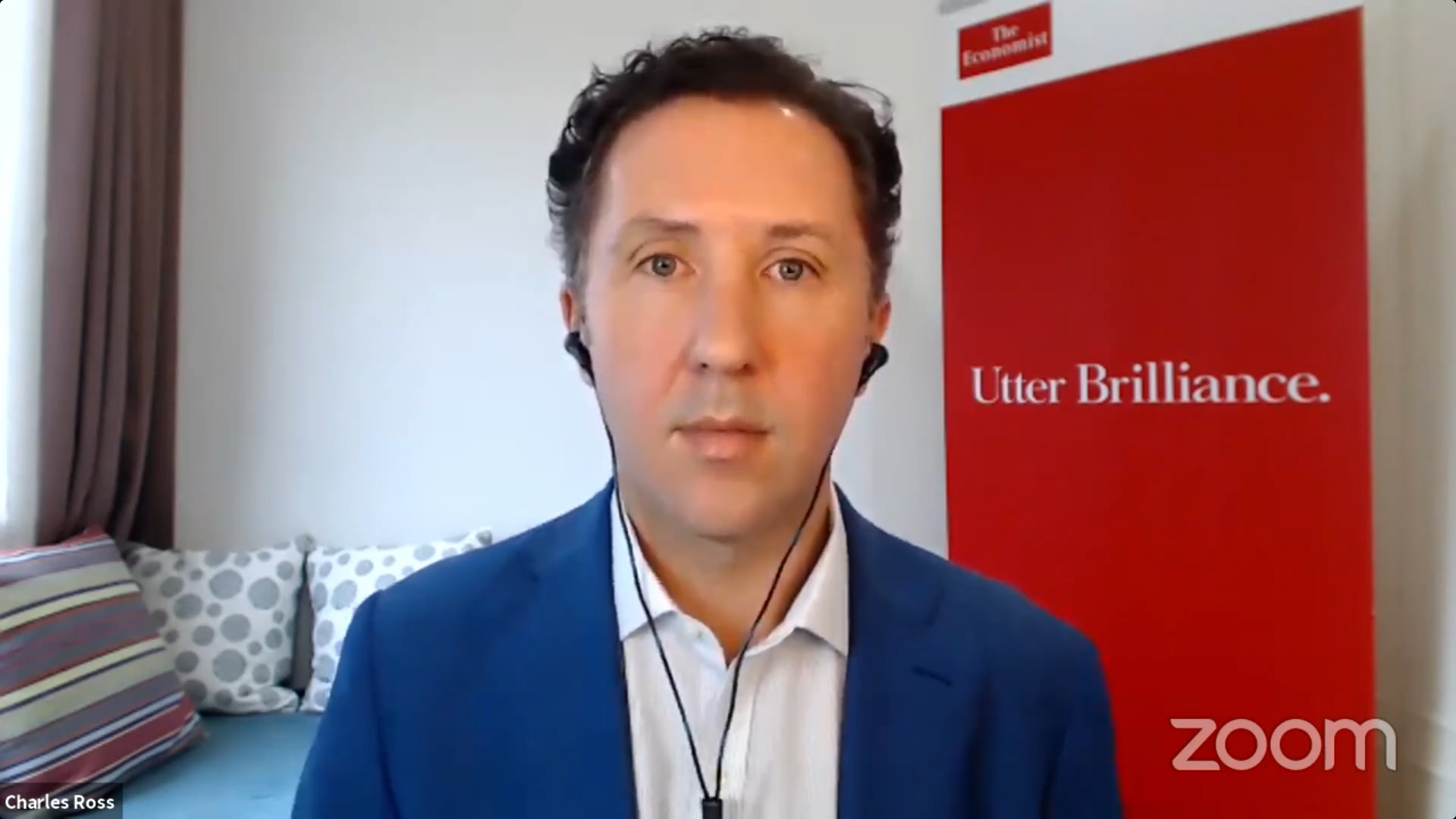
Gabriel Thoumi, Director of the Plastics Programme and Financial Markets, Planet Tracker, cautioned companies are not reporting the risks their waste brings.
Juan Bofill, Senior Engineer in the Water Management Division, European Investment Bank, presented the Clean Oceans Initiative, which identifies projects that fight plastic waste in rivers, seas, and on land, and has the goal to finance EUR 2 billion worth of public and private sector projects by the end of 2023.
Patrick Labat, Senior Executive Vice President, Northern Europe, Veolia, underscored the need for incentives for recycling, citing the example of Germany, where consumers receive payment per plastic bottle returned to the store, resulting in 95% of plastic bottles being recycled.
Tina Ngata, Environmental and Indigenous Rights Advocate, Women Major Groups Representative, stressed there can be no inclusion of indigenous knowledge without indigenous people.
Nicholas Holmes, Chief Technology Officer for Global Government, IBM Cloud and Cognitive Software, said the Global Partnership on Marine Litter (GPML) digital platform allows engagement from multiple stakeholders across multiple sectors.
Key takeaways from the session included:
- While it is encouraging to see the many initiatives, better coordination is needed to be more effective in meeting the SDG target 14.1 on marine waste;
- Monitoring and evaluation of the different initiatives is rare; and
- Too much information may make it difficult for governments to engage and understand what needs to be done.
Rethinking Cities: Bringing Nature to the Urban Environment

Co-convened with the Sustainable Cities Impact Programme, the Integrated Urban Solutions Partnership and the Global Alliance for Building and Construction (Global ABC).
The session on “Rethinking Cities: Bringing Nature to the Urban Environment” examined:
- Strategies needed to redesign, rethink, and transform cities;
- Infrastructure needed for efficiency, resilience, and inclusion;
- Policies, investments, and multi-sector initiatives required to implement these strategies at scale; and
- Cross-cutting interlinkages in different infrastructure systems, with a view to supporting changes in consumption and production patterns.
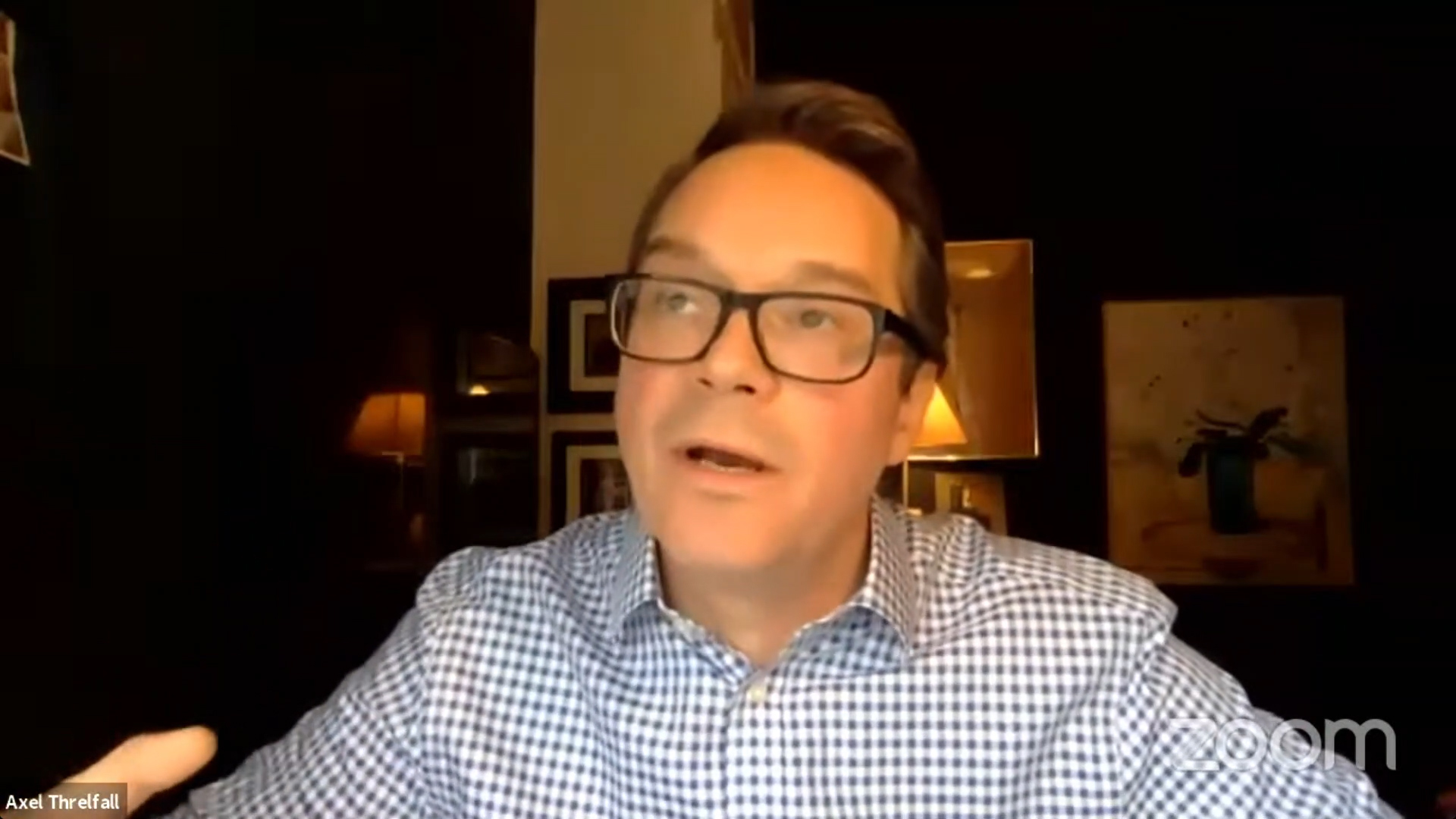
Yvonne Aki-Sawyerr, Mayor of Freetown, Sierra Leone, underscored the need to “not only plant but to grow trees” to ensure citizens’ ownership of bringing back nature in cities.
Martin Powell, Siemens AG, highlighted trends such as transforming buildings into distributed power systems and connecting infrastructure to data platforms.
Harry Verhaar, Signify, said up to 50% of urban energy consumption involves lighting, and energy efficiency investments can save up to 80% of its cost.
Paolo Falcioni, Director General, Home Appliance Europe, underscored there is sufficient technology to lead a sustainable lifestyle. It is more efficient to use dishwashers than doing dishes by hand, he said.
Li Zhang, Secretary General, Society of Entrepreneurs for Ecology Foundation, China, underscored the need to rely on science to understand the biodiversity living in cities.
Wang Lan, Deputy Dean, College of Architecture and Urban Planning, Tongji University, discussed urban planning that allows people to reach green walking spaces within 15 minutes and focuses on both urbanized and non-urbanized areas.
Robert Pinter, Green and Healthy Buildings Manager, Europe, International Copper Association, noted that in order to achieve real circularity, the construction sector should use only recyclable materials.
Abdalah Mokssit, Secretary, Intergovernmental Panel on Climate Change (IPCC), described cities as “laboratories for testing” three concepts: knowledge for risk management; multi-level vigilance; and migration to a science-policy-business model.
Sarah O’Carroll, Cities Lead, The Ellen MacArthur Foundation, underscored the need to change the current “take resources-make waste” economy and reimagine cities in line with a circular economy.
Maimunah Mohd Sharif, Executive Director, UN Human Settlements Programme (UN‐Habitat), underscored the need for “public-private-people partnerships” for advancing sustainable and green urbanization.
Rodrigo Rodriguez Tornquist, Secretary of Climate Change, Sustainable Development and Innovation, Argentina, highlighted the need to promote urban agriculture for better and organic food in cities.
Carlos Manuel Rodriguez, Global Environment Facility (GEF) CEO and Chairperson, urged using integrated approaches to urban planning, and underscored that integrated urban planning should consider nature as an additional sector.
Key takeaways from the session included:
- It is clear cities are at the frontline of both the impact and response to crises;
- COVID-19 recovery must have “green strings attached”;
- The time to rethink cities is now;
- Commitments have been made, and action is on the way, but scale and pace are needed. While cities are at the forefront, they cannot do it alone. An “all-citizen” and “all-government” approach is needed.
